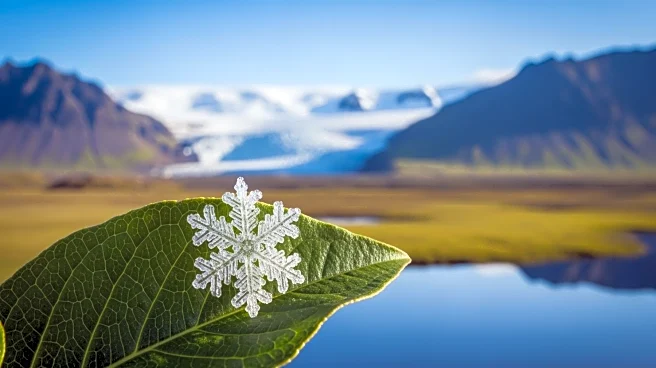What's Happening?
Iceland has reported the presence of mosquitoes within its borders for the first time, marking a significant change in the country's insect population. The Natural Science Institute of Iceland confirmed
the discovery of three Culiseta annulata mosquitoes, found by insect enthusiast Björn Hjaltason on a farm near Reykjavik. The mosquitoes are believed to have arrived via freight and are capable of surviving Iceland's climate. This development is part of a broader trend of new insect species appearing in Iceland due to climate change and increased international transportation.
Why It's Important?
The arrival of mosquitoes in Iceland is a notable consequence of climate change, as rising temperatures make the region more hospitable to species previously unable to survive there. This could have implications for public health, as mosquitoes are known vectors for diseases. Although the Culiseta annulata species does not carry known infections in Nordic countries, their presence highlights the potential for new health challenges. The situation underscores the need for Iceland to adapt its environmental and public health policies to address the impacts of global warming.
What's Next?
Icelandic authorities may need to implement monitoring and control measures to manage the mosquito population and prevent potential health risks. The discovery could lead to increased research on the ecological impacts of climate change in Iceland and the development of strategies to mitigate its effects. As the Arctic region warms at an accelerated rate, Iceland may face further changes in its biodiversity and ecosystem dynamics.
Beyond the Headlines
The presence of mosquitoes in Iceland raises broader questions about the impact of climate change on global ecosystems. As temperatures rise, countries may experience shifts in their native species and face new ecological challenges. This situation highlights the importance of international collaboration in addressing climate change and its effects on biodiversity.










